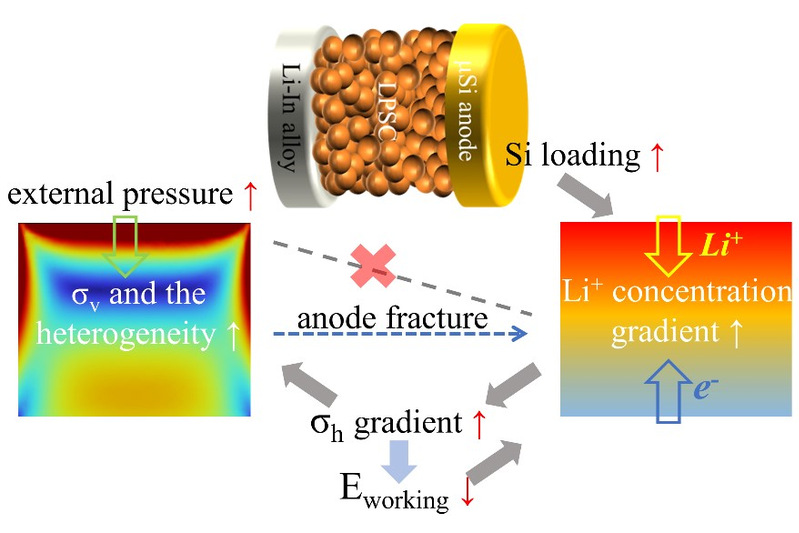Solid-state batteries (SSBs) containing Si anodes have been recognized as a promising solution to overcome challenges associated with Li anodes. However, in the battery system, Si anodes require the application of high external pressure to the batteries to achieve stable cycling. Moreover, the correlation between external pressure and battery performance and the failure mechanisms of Si anodes are still unclear, which has seriously hindered the performance optimization and practical application of silicon-based SSBs. Herein, based on the stacked pressure-coupled electrochemical-mechnical mechanism, Prof. Lin Yingbin’s team systematically investigate the lithium storage and failure mechanism of micro-sized Si anodes in Sulfide-based SSBs, reveal the lithiation kinetics, morphological evolution, and battery performance decay of silicon through experiments and simulations under varying Si loads and external pressures, and highlight that maintaining the low Li+ concentration gradient is the key to achieving the stable cycling of Si anodes under low external pressure. This work provides some reference for the lithium storage mechanism and performance enhancement of Si anodes in SSBs, and a potential path for the development of the next-generation high-performance electrodes.
The research results, titled “Unraveling the Performance Decay of Micro-sized Silicon Anodes in Sulfide-based Solid-State Batteries,” were published in Energy Storage Materials, an international journal. FNU is the first affiliation of the paper, with Tao Jianming, a doctoral student and Han Juanjuan, an undergraduate, as the co-first authors, and Professor Lin Yingbin, as the corresponding author. This work was supported by the National Natural Science Foundation of China and the Natural Science Foundation of Fujian Province.
Paper link: https://doi.org/10.1016/j.ensm.2023.103082

(Translated by Wang Ye/ Reviewed by Xie Xiujuan)
